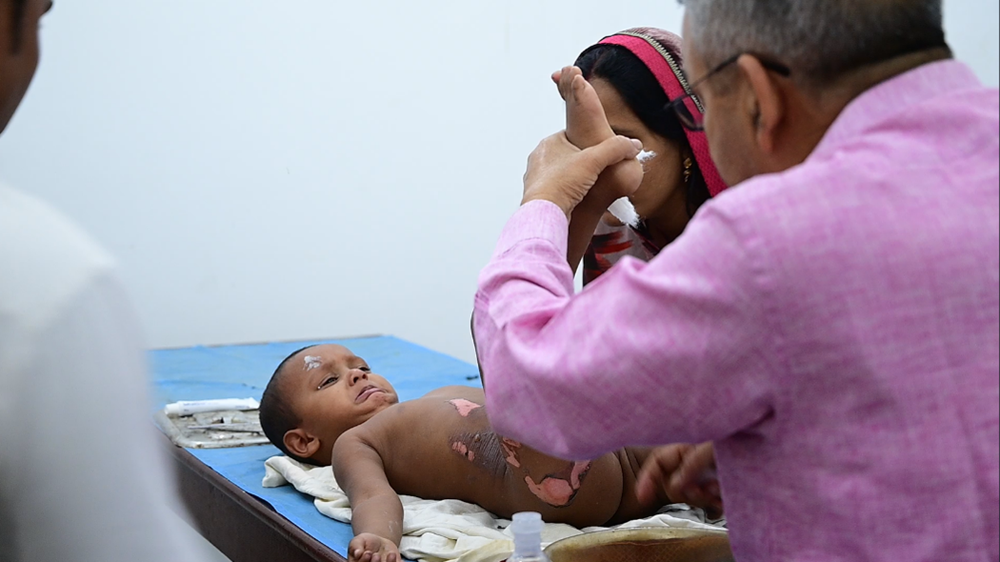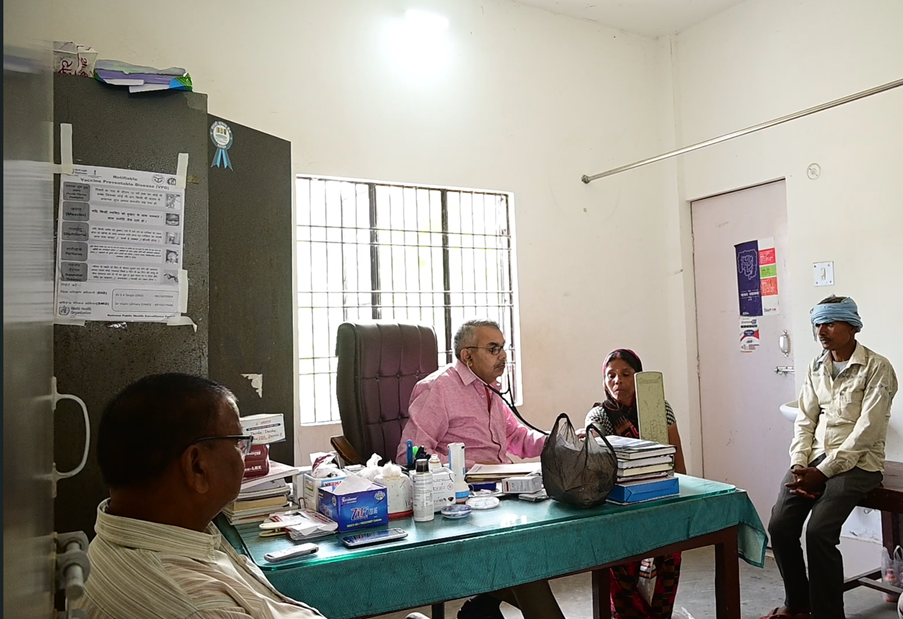In rural India, Primary Health Centers (PHCs) and Sub Health Centers (SHCs) play a major role in providing last-mile medical services such as immunization, child deliveries and neonatal care, all of which cannot be delivered without regular electricity supply. There are approximately 25,000 PHCs and 155,000 SHCs in rural India as of 2020. Half of the PHCs in India either do not have electricity, or receive an irregular supply, hindering the ability of the PHCs to provide healthcare service, preserve medicines and vaccines, and retain staff. [Power For All Factsheet: Solarizing Rural Health Centers in India
Our solar clinic program helps make life changing and life saving care in rural communities possible. Below are a few stories from the people who have benefited.
Sujeet Rana is a three-year-old boy from the Nepal border area in Uttar Pradesh. He sustained a head injury while playing one evening, and was rushed unconscious to the Bankati health clinic near his
village. The doctor there immediately realized Sujeet’s heart rate was falling and he needed oxygen. There was no grid power due to frequent power cuts but fortunately the clinic was equipped with a solar array and battery backup provided by Solar Village Project. This allowed the doctor to run the oxygen concentrator which saved Sujeet’s life.
One-year-old Surya from the Bachrach District of Uttar Pradesh was severely burned when a pot of boiling water spilled on him. He was taken to the nearby Tiwari Clinic for emergency treatment. When he arrived there was no grid power available but the clinic was fully operational thanks to the solar array and battery backup provided by Solar Village Project. Thanks to the reliability of solar power Surya was able to get critical emergency treatment.
Phulwa Devi has been diagnosed with Eosinophilia, a higher than normal level of white blood cells that is related to parasitic infections and cancer. She has to visit her local clinic at Narottam Nagar twice a month for treatment with an electrically powered nebulizer, which turns medical liquid into an inhalable mist. Until recently, because of the unreliability of the grid, she had to travel from her village eight to ten times a month, hoping that power would be available when she arrived. Now that Solar Village Project has installed solar panels at the clinic, she comes twice a month, knowing that power cuts from the grid have been eliminated.
The importance of access to electricity when it comes to modern healthcare cannot be overstated. Access to reliable power can not only be life changing it is also lifesaving.






